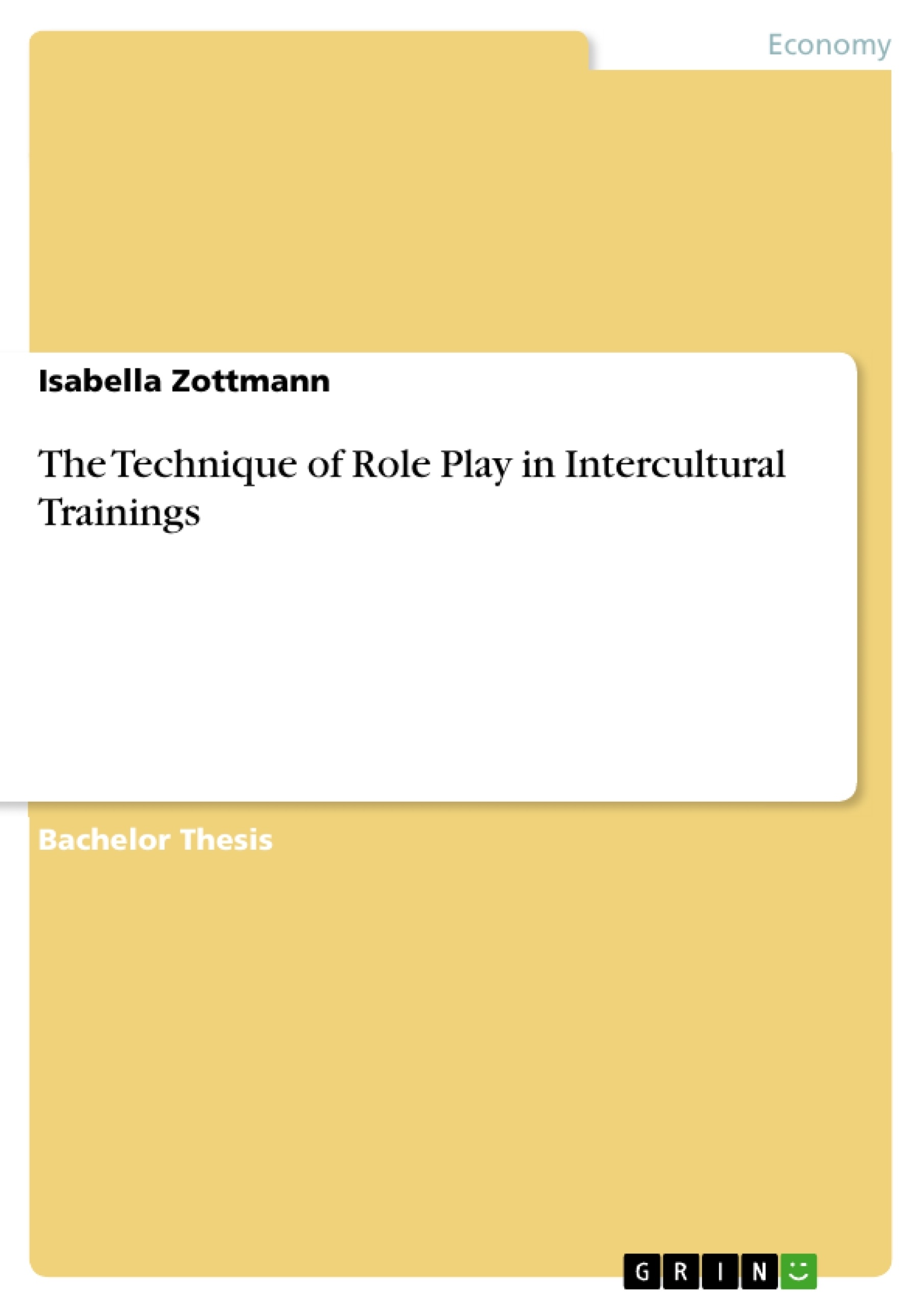The report focuses on the technique and nature of role plays in intercultural training approaches. It describes the theoretical framework of role plays. Since the technique belongs to the experiential learning approach, it is given a short overview on the process of experiential learning. Afterwards, basic steps to implement a role play are described. The implementation has to be well thought out and the trainer has to consider several steps, which influence the efficiency of the play.
Inhaltsverzeichnis (Table of Contents)
- Introduction
- The Importance of Intercultural Competence
- Purpose of the Report
- Intercultural Training
- Attrition and International Assignment Failure
- Process of Enculturation
- Development and Purpose of Intercultural Trainings
- Basic Training Design
- Theoretical Foundation of Role Plays
- Description of Role Play
- The Learning Process
- The Implementation
- Conditions for Effective Intercultural Training and Role Play
- Role Play Games and Exercises
- The Contrast-Culture Technique
- Role Plays based on Cards: Barnga and Ecotonos
- BaFá BaFá
- The Albatross
- Conclusion
Zielsetzung und Themenschwerpunkte (Objectives and Key Themes)
This report aims to demonstrate the impact of cultural differences on communication, interaction, and behavior, especially in international business contexts. It highlights the need for intercultural training to address the challenges posed by cultural diversity in globalized workplaces. The report specifically focuses on the role of role play in intercultural training, exploring its theoretical foundation, implementation, and practical applications.
- Importance of intercultural competence in global business
- Challenges of cultural differences in international assignments
- The role of intercultural training in mitigating cultural shocks
- Theoretical framework and practical applications of role play in intercultural training
- Evaluation and effectiveness of role play as an intercultural training tool
Zusammenfassung der Kapitel (Chapter Summaries)
- Introduction: This chapter emphasizes the increasing importance of intercultural competence in a globalized business environment. It highlights the challenges of international assignments and the need for effective intercultural training to overcome cultural barriers and enhance communication, interaction, and collaboration.
- Intercultural Training: This chapter provides an overview of intercultural training, discussing its development, purpose, and basic training design. It explores the concept of cultural shock and the process of enculturation, which involves stages of excitement, disillusionment, cultural shock, and adjustment.
- Theoretical Foundation of Role Plays: This chapter focuses on the theoretical foundation of role play in intercultural training. It discusses the process of experiential learning and outlines the steps involved in implementing a role play effectively.
- Role Play Games and Exercises: This chapter presents various examples of role play games and exercises used in intercultural training. It describes the Contrast-Culture Technique, card-based role plays (Barnga and Ecotonos), BaFá BaFá, and The Albatross. Each section discusses the specific purpose, mechanics, and participant reactions to these exercises.
Schlüsselwörter (Keywords)
Intercultural competence, global business, international assignments, cultural differences, cultural shock, intercultural training, role play, experiential learning, communication, interaction, collaboration, cultural awareness, cultural sensitivity, diversity management.
Frequently Asked Questions
Why is intercultural competence important in global business?
It helps mitigate cultural shock and prevents international assignment failure by improving communication and collaboration across diverse cultures.
What is the "experiential learning" approach in training?
It is a learning process where participants gain knowledge through direct experience and reflection, which is the core framework for role-playing exercises.
What are some examples of intercultural role-play games?
Common exercises include BaFá BaFá, The Albatross, and card-based games like Barnga and Ecotonos.
What are the stages of the enculturation process?
The process typically involves stages of excitement, disillusionment, cultural shock, and eventually adjustment to the new environment.
How should a trainer implement a role play effectively?
Implementation requires careful planning, considering specific steps in the learning process to ensure the exercise influences the participants' cultural sensitivity.
- Citar trabajo
- Isabella Zottmann (Autor), 2017, The Technique of Role Play in Intercultural Trainings, Múnich, GRIN Verlag, https://www.grin.com/document/384607



